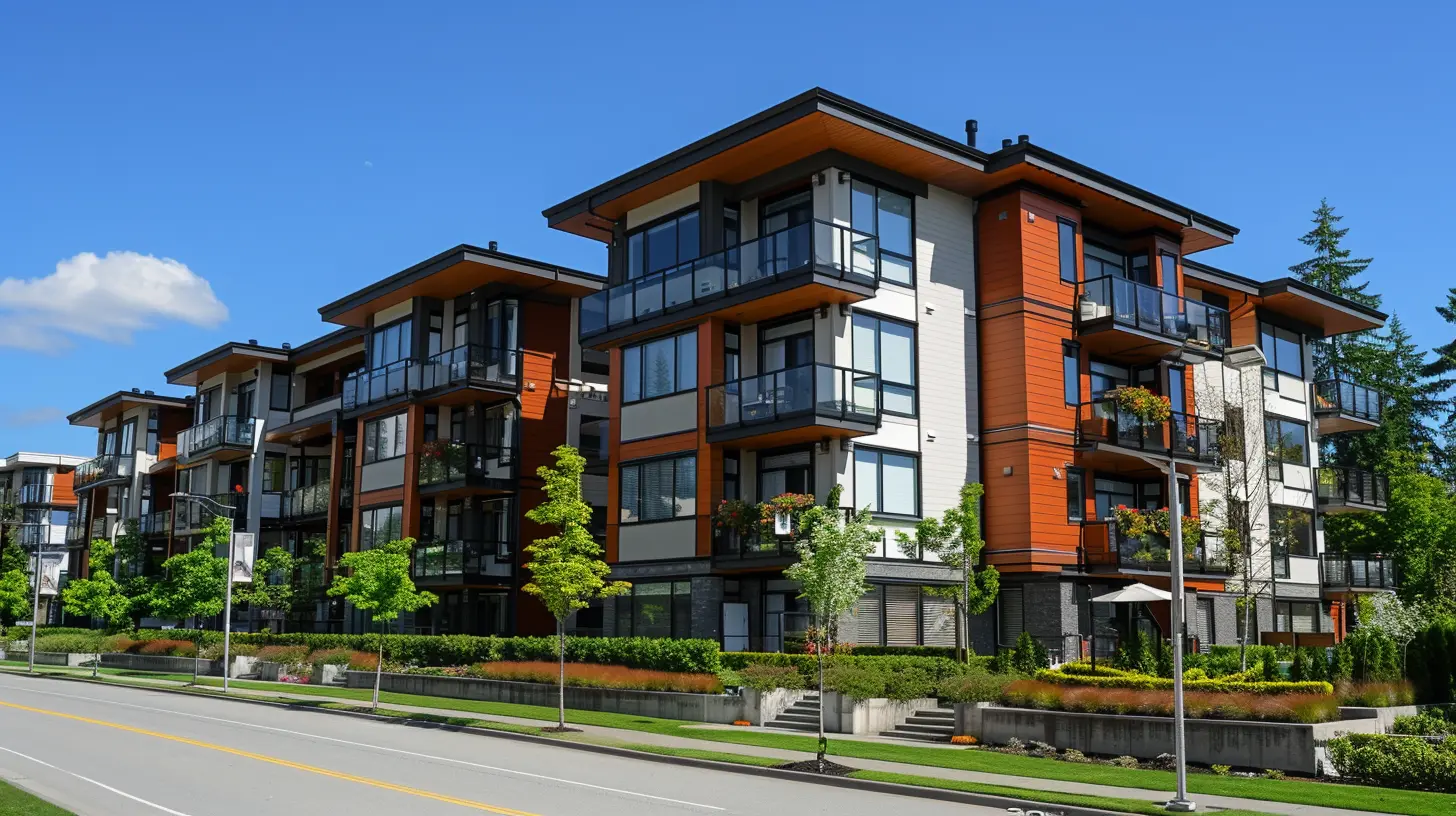The Importance of Property Management in Commercial Real Estate
9 June 2025
Managing commercial real estate isn’t just about owning buildings—it’s about keeping them running smoothly, making them profitable, and ensuring tenants are satisfied. That’s where property management comes into play. Effective property management is the backbone of successful commercial real estate investments. Without it, a once-thriving property can quickly become a financial burden.
In this article, we’ll break down the importance of property management in commercial real estate, why it’s a must-have for investors, and the key benefits it brings to the table.

What is Property Management in Commercial Real Estate?
Property management in commercial real estate refers to the supervision of office buildings, retail spaces, warehouses, and other business-related properties. It involves overseeing daily operations, handling tenant relations, maintaining the property, and ensuring profitability.A property manager acts as the bridge between the owner and the tenants, ensuring that everything runs like a well-oiled machine. They handle everything from rent collection to maintenance issues, lease agreements, and even marketing vacant spaces.

Why is Property Management Crucial in Commercial Real Estate?
Owning a commercial property is one thing—managing it effectively is another. Without proper management, even high-value properties can lose their potential. Here’s why property management is a game-changer:1. Ensures Proper Maintenance & Repairs
Imagine walking into a commercial building with flickering lights, broken elevators, and peeling paint. Doesn’t set the best impression, does it? Well-managed commercial properties undergo regular maintenance, keeping them in top shape.Property managers ensure that repairs are done promptly, preventing small issues from turning into costly fixes. They coordinate with vendors, schedule maintenance checks, and make sure the property remains appealing to potential tenants and customers.
2. Maximizes Tenant Satisfaction & Retention
Happy tenants are long-term tenants. A well-managed building means fewer complaints, better customer service, and a positive experience for renters. Property managers address tenant concerns quickly, ensuring their needs are met.If tenants feel valued and their issues are resolved in a timely manner, they are more likely to renew their leases. This reduces vacancy rates and keeps rental income steady.
3. Boosts Property Value
A well-maintained, efficiently managed property sees an increase in value over time. When a building is clean, secure, and running smoothly, its market value grows. On the flip side, neglecting property management can lead to depreciation and loss of potential revenue.Investors looking to sell their property in the future will also benefit from consistent management, as a well-kept building attracts buyers willing to pay a premium.
4. Handles Financial Management & Rent Collection
One of the biggest challenges in commercial real estate is rent collection. Without a structured system, late or missed payments can become a nightmare.Property managers take care of invoicing, rent collection, and even handling late payment penalties. They also manage budgets, track expenses, and ensure the property remains financially stable.
5. Reduces Legal Risks
Real estate involves multiple legal aspects—from lease agreements to compliance with safety and zoning regulations. A knowledgeable property manager ensures the property adheres to all legal requirements, protecting the owner from potential lawsuits or fines.They also handle lease negotiations, making sure agreements align with legal standards and benefit both tenants and property owners.
6. Improves Marketing & Tenant Acquisition
Vacant commercial properties mean lost income. Property managers actively market available spaces, using digital listings, networking, and real estate connections to attract new tenants.They also screen potential tenants, ensuring that businesses moving in are reliable and able to meet their lease agreements. This reduces tenant turnover and keeps occupancy rates high.

Key Responsibilities of a Commercial Property Manager
So, what exactly does a property manager do on a daily basis? Their responsibilities extend far beyond just collecting rent. Here are some key duties:- Maintenance & Repairs – Ensuring that HVAC systems, plumbing, and electricals are in working order.
- Tenant Relations – Handling complaints, concerns, and lease-related inquiries.
- Financial Management – Managing budgets, tracking expenses, and maintaining financial records.
- Legal Compliance – Making sure the property adheres to state and federal regulations.
- Marketing & Leasing – Advertising vacancies, screening tenants, and drafting lease agreements.
- Security & Safety – Implementing security measures to safeguard tenants and properties.

Choosing the Right Property Management Team
Not all property managers are created equal. Choosing the right team can make a huge difference in how smoothly a commercial property operates. Here are some qualities to look for:- Experience & Expertise – Look for a team with a proven track record in commercial real estate management.
- Strong Communication Skills – Property managers need to be responsive and approachable.
- Financial & Organizational Skills – Managing budgets, contracts, and expenses requires strong financial acumen.
- Tech-Savviness – Many modern property management firms use software for tracking maintenance, rent payments, and reporting.
- Proactive Approach – A good property manager doesn’t just put out fires; they prevent them before they happen.
The Long-Term Benefits of Property Management
The benefits of hiring a professional property management team extend beyond just keeping tenants happy. It’s about long-term sustainability and profitability. Here’s what you stand to gain:- Consistent Income Stream – With fewer vacancies and on-time rent collection, owners enjoy a steady cash flow.
- Less Stress & Workload – Owners can focus on growing their investments instead of handling daily property operations.
- Higher Property Value – Well-managed properties retain and even increase in value over time.
- Better Tenant Relationships – Satisfied tenants result in fewer disputes and longer leases.
- Legal Protection – Property managers ensure compliance with regulations, reducing the chances of legal issues.
Final Thoughts
Investing in commercial real estate is a smart move, but success hinges on effective property management. It’s not just about owning the building; it’s about maintaining, optimizing, and growing its potential. Whether you’re a hands-on investor or prefer a more passive approach, a skilled property management team is your ticket to long-term profitability and peace of mind.If you want your commercial property to thrive, don’t cut corners on management. It’s the secret ingredient to a lucrative and hassle-free investment.
all images in this post were generated using AI tools
Category:
Commercial Real EstateAuthor:

Vincent Clayton
Discussion
rate this article
3 comments
Elowen McNeal
Think of property management in commercial real estate as the secret sauce in a great pizza—without it, everything falls flat! Keep those tenants smiling and the profits rising! 🍕🏢
June 18, 2025 at 3:49 AM

Vincent Clayton
Absolutely! Effective property management is essential for maintaining tenant satisfaction and maximizing profitability in commercial real estate. It truly is the secret ingredient for success!
Flora Brown
Without savvy management, your property’s just a money pit!
June 15, 2025 at 3:37 AM

Vincent Clayton
Absolutely! Effective management is crucial to maximizing returns and minimizing costs in commercial real estate.
Zealot Gates
Effective property management is crucial in commercial real estate, ensuring optimal tenant satisfaction, maximizing property value, and minimizing operational costs. A well-managed property can significantly enhance investment returns.
June 10, 2025 at 4:13 AM

Vincent Clayton
Absolutely! Effective property management is key to achieving tenant satisfaction, maximizing value, and improving returns in commercial real estate. Thank you for highlighting its importance!



